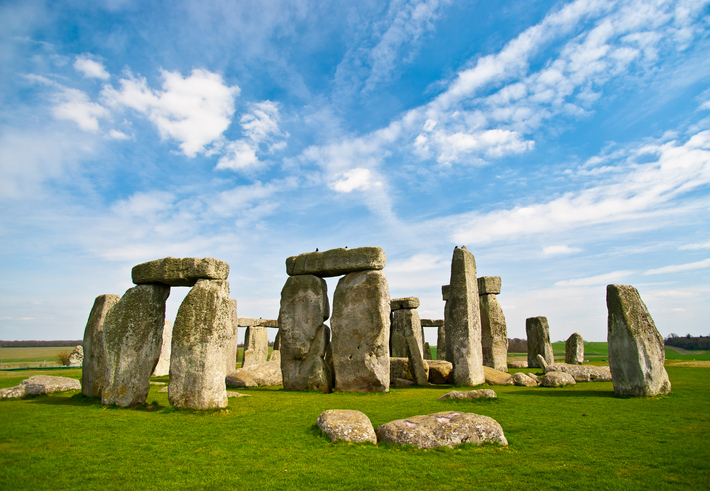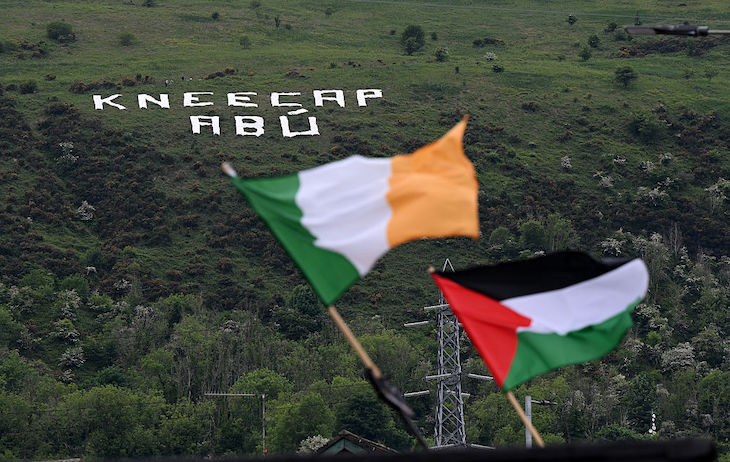If you gaze south from the sarsens of Stonehenge, your view at present is of a constant crocodile of cars and caravans grinding along the nearby A303 en route to the West Country. Unfortunately the government’s plans to improve matters by burying the road in a neat two-mile tunnel, already badly delayed by activist lawfare, now face another obstacle. The problem is that Stonehenge is a Unesco world heritage site – and the UN functionaries that run Unesco do not approve. Indeed they disapprove so much that the Unesco World Heritage Committee last week recommended that unless it was stopped, Stonehenge should be added to its official list of heritage in danger.
For a principled government, there is only one answer to this impertinence. It should ignore the finger-wagging emanating from Unesco and announce that, assuming it wins the final round of judicial review, it will press ahead regardless.
Would it be that big a deal if Unesco actually carried out its threat to list Stonehenge as endangered?
The Unesco committee’s report is not only remarkably detailed, it is frankly intrusive. The government’s plan will indeed preserve the environs of Stonehenge. But that, says the UN, isn’t nearly enough. The ‘overall landscape of which the henge is a central focus’ has to be protected. The UK must avoid any negative impact on the ritual associations of that landscape as a whole. Cuttings at the ends of the tunnel, even with substantial green bridges across them, will not do: the tunnel itself must be greatly lengthened at vast expense, since the site’s archaeological landscape that must be preserved at all costs. At all costs? Er, actually, it seems so. World Heritage status, we are piously told, ‘requires that the best available option be pursued, not the one that would be best within budgetary constraints’.
The difficulty is that Unesco here is essentially acting, not so much as an international body providing helpful guidance, but as a kind of super-planning inspectorate to which activists can appeal if they don’t like the decisions of our own planners. This is worrying. It is difficult enough to build big infrastructure in the UK as it is: the possibility of a UN body claiming the right to second-guess the results of our already labyrinthine planning laws makes matters ten times worse.
And, of course, that is without the democratic deficit inherent in the whole process. The UN may blithely say that we must spend whatever it takes for heritage preservation. But our elected representatives, with constituents to satisfy and budgets to balance, must surely have a right to say ‘enough is enough’ and decide for themselves how far they are prepared to trade off archaeological integrity for a faster drive to Devon.
The UN, of course, will respond that this is too bad: we are obliged as a party to the 1972 Unesco heritage convention to do all we can to preserve our cultural and natural heritage. However there must be large doubt whether a vague obligation such as that can justify the kind of detailed demands it is making here. For that matter, if this is indeed the interpretation of the convention, we should perhaps think twice about whether we want to remain part of it.
But step back a moment. Would it be that big a deal if Unesco actually carried out its threat to list Stonehenge as endangered? The answer is, probably not. True, the papers ominously mention, correctly, that this would put it in the same category as sites in Syria, Afghanistan and Libya. But get things in perspective. Sites like the Everglades in Florida, the city centre of Vienna and the Roșia Montană mining area in Transylvania have also been on the same list for years. Did you know that, and if you did has it made you think less of the US, Austria or Romania as a result? Be honest.
Indeed, take things further. Assume we call Unesco’s bluff and go ahead. Unesco, having huffed and puffed, takes the nuclear option and unilaterally removes Stonehenge entirely from the list of UK mainland world heritage sites. Would that have much effect? The answer again is no, and here we have evidence.
Three years ago this happened to a site in the UK. For several years, a self-righteous Unesco had repeatedly sought to give orders to the city planners of Liverpool about what they could and could not allow Everton Football Club to build on the Mersey waterfront, an area forming part of the so-called Liverpool maritime mercantile city world heritage site. The planners politely ignored them and went ahead regardless. In 2021 an annoyed Unesco delisted the site. What happened? Frankly, outside the heritage industry no-one gave a damn.
What to do about the Stonehenge affair will be an interesting test for any incoming government. Will it side with working people who want a faster road to the Cornish Riviera, or with the dour apparatchiks of Unesco? Indeed, a nicely awkward question could be put to Keir Starmer himself on this. As a fanatical football supporter, would you in the case of Liverpool have sided with the international cultural bureaucracy, or with Everton fans who only wanted a decent stadium? Be careful how you answer this one, Keir.







Comments